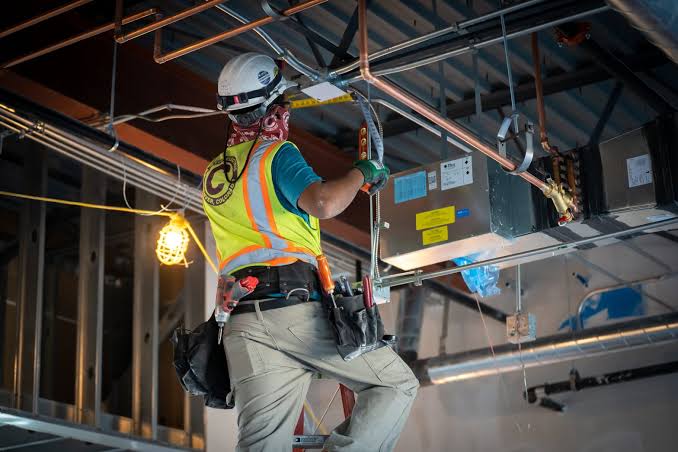Key Takeaways:
Table of Contents:
Why Reliable Electrical Suppliers Matter
In construction and project planning, sourcing tooling materials from reliable electrical suppliers forms the backbone of successful project execution. Every project manager knows that the lifeblood of a project is its ability to maintain uninterrupted progress. This requires materials to be delivered on time and to meet stringent quality criteria. When issues arise—such as a sudden demand increase—the actual value of a reliable supplier shines. They adapt, ensuring that your project timeline stays intact. This proactive approach keeps projects on schedule and enhances stakeholder confidence in project delivery.
Traits of Dependable Suppliers
What makes a supplier dependable? The first trait is consistent communication. Suppliers who regularly update their clients about order statuses and potential delays breed trust. They meet deadlines and provide materials that meet or exceed expectations regarding quality. A reputation for reliability is often hard-earned and comes from years of demonstrated excellence. Additionally, these suppliers will have established long-term customer relationships with repeat business and positive word-of-mouth endorsements. Delivering consistent value through quality and timely service is key to differentiating a dependable supplier. Building such relationships can significantly enhance project feasibility, as detailed in the informative guide on building supplier relationships. This resource underscores how strong relationships craft a foundation for seamless project flow and success.
Impact of Supplier Reliability on Project Timelines
One of the most critical metrics in project management is time. Supplier reliability directly impacts this metric. Unreliable suppliers can delay project timelines through late deliveries, leading to a cascading effect that affects every subsequent project phase. As delays mount, budgets are stretched, and resources are diverted to handle emergencies rather than focusing on planned activities. On the other hand, Reliable suppliers ensure materials arrive on schedule, allowing for a smooth transition between project phases. This timeliness contributes significantly to maintaining a project’s scope and budget, ultimately safeguarding the project’s success.
Cost Implications of Choosing Quality Suppliers
At first glance, investing in a quality supplier is an additional expense. However, look closer, and you’ll find savings that aren’t apparent at the surface. Quality suppliers reduce the likelihood of errors, rework, and project delays, and they are notorious for spiraling out-of-control costs. They provide materials that meet required specifications, eliminating the need for costly replacements or schedule adjustments. Proper financial management, bolstered by superior supplier performance, leads to budgetary adherence. This fiscally responsible approach enhances both short-term financial success and long-term project viability.
Industry Standards and Compliance
In today’s regulated construction environment, working with suppliers who adhere to industry standards is not merely necessary; it’s essential. Ensuring that your suppliers meet safety, environmental, and legal standards means that your projects will remain within legal and regulatory boundaries. Non-compliance can lead to legal entanglements, stalled projects, or even restructuring at the project’s expense. Trustworthy suppliers are keenly aware of these standards, regularly updating their practices to remain compliant. This proactive stance protects the project and its stakeholders from potential liabilities, ensuring smooth operational processes.
Support Services and Value-Added Components
Another key benefit of working with reliable suppliers is access to support services and value-added components. These services include logistics support, technical assistance in material selection, and after-sales support. They provide clients with an additional safety net, ensuring that any disruption can be promptly addressed. Furthermore, these services often add value by streamlining operations, mitigating potential disruptions, or providing innovative solutions to project challenges.
How to Choose the Right Supplier for Your Needs
Choosing the right supplier is an art that demands a strategic approach. It begins with a thorough assessment of your project’s needs and compares them against supplier offerings. Factors such as supplier proximity and expertise, range of products, financial stability, and reputation in the industry serve as invaluable criteria in the selection process. Evaluating these against your requirements can reveal the best suppliers—those who offer solutions tailored to enhance project success. Decision-making in this context should aim beyond immediate needs, factoring in potential long-term project trajectories.
Conclusion: Building Long-Term Supplier Relationships
Long-term supplier relationships establish layers of advantages, from improved pricing to reliable support. Consistent supply chains built on trust ensure the successful execution of projects, reducing unexpected variables and stresses. Moreover, these partnerships enable adaptive strategies over time, creating avenues for innovation and sustained competitive advantage. From forming to maintaining these partnerships, clear communication, mutual respect, and shared objectives shape a fertile ground for successful outcomes. By fostering these alliances, companies build a resilient foundation for current and future projects, ensuring steady progress and strategic market positioning.

